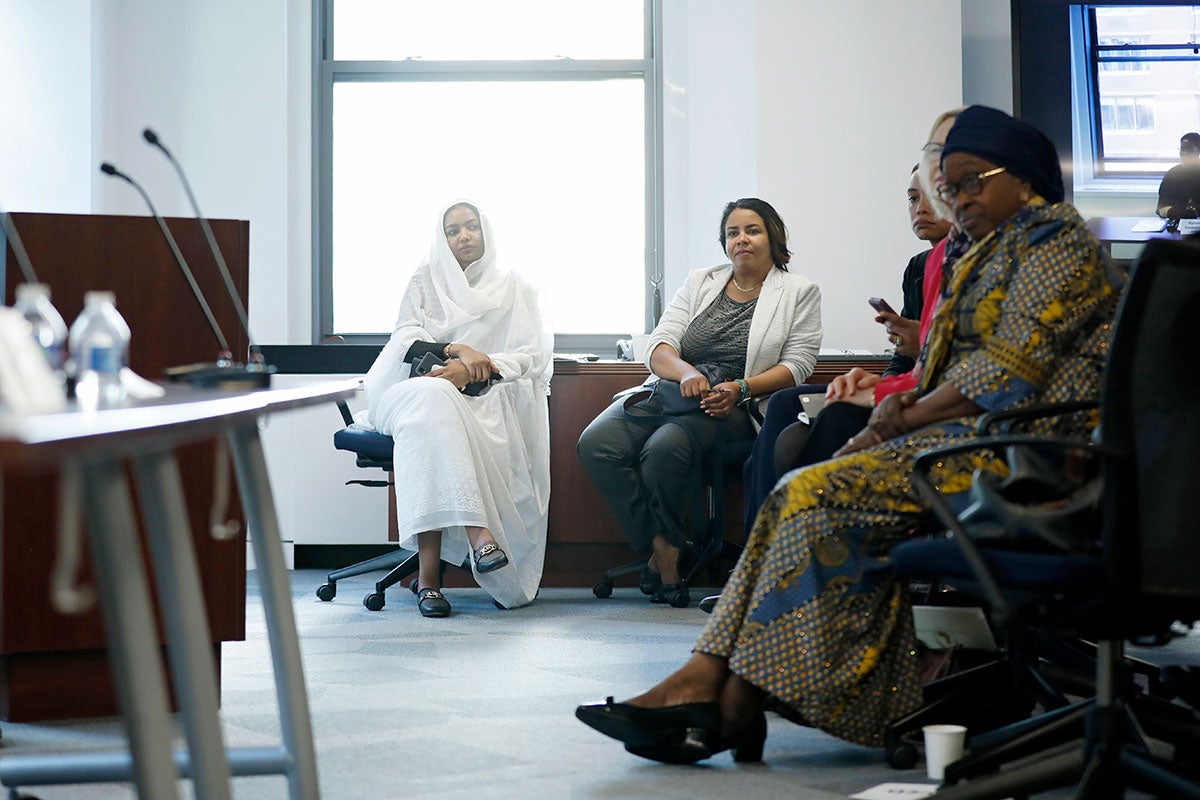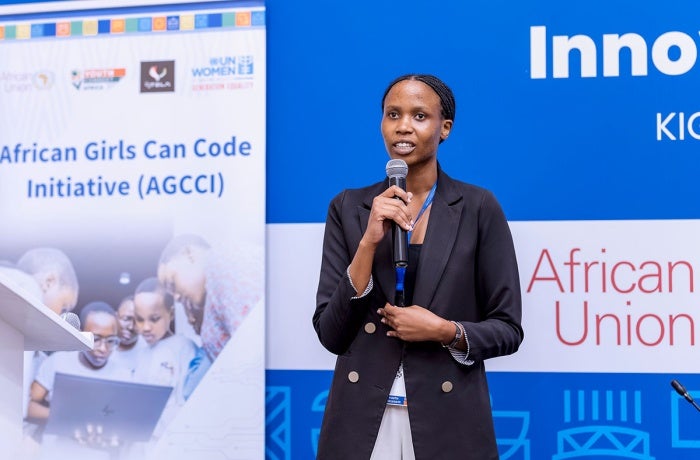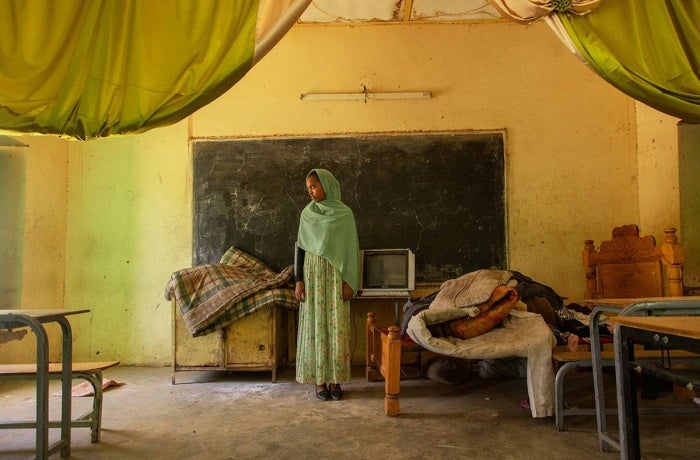‘Women are not necessarily killed because of bullets or bombs’ – Sudanese activists describe humanitarian crisis amid civil war
“During the last 20 years, Sudanese women have been trained in negotiations and mediations. Not because this was a favourable subject for them—but because we’ve had so many crises”, said Shaza Bala Elmahdi, the Sudan Country Director for the Center for International Private Enterprise (CIPE).
Women and women’s organizations were involved in negotiations during the wars with South Sudan and in Darfur, and during the country’s subsequent upheaval.
Those groups have “done a lot of work in terms of raising the capacity, which was needed”, Elmahdi said. “But when you look at the results of all this work, there is still little representation happening at the top.”
Sudan’s civil war will mark its one-year point on 15 April. While women are facing disproportionate violence, displacement, and humanitarian need during the crisis, they are not equally represented in the talks that may help end the conflict.

During negotiations in late 2023, Elmahdi noted, even an attempt to add a quota to women’s representation at the table fell short, with a mandate that women make up just 30 per cent of negotiators.
“We've seen researchers saying that, if you have women at the negotiating table, then you have a more sustainable peace process”, she said. “But they are not taking this into account. Nobody's keen to bring women to the table.”
Women were utterly cut out from the process during negotiations about humanitarian access, said Hanin Ahmed, a young activist who founded an emergency room program serving those in need in the city of Omdurman.
In the meantime, Sudanese women are facing some of the worst humanitarian challenges in the world.
“Right now, we have a famine looming on the horizon”, said Ahmed. She described how humanitarian aid and women’s dignity kits are frequently intercepted and blocked by warring parties, and how the conflict has affected everything from pregnancy care to sexual assault.
“Victims are in fear to file complaints about rape cases because they fear re-violation”, she said.
UN Women has partnered with women’s organizations implementing an emergency humanitarian plan in Sudan, and has supported local partners supplying life-saving assistance to millions. But the scale of the need is fast outpacing the speed that it can be delivered.
“Sudanese women are very resilient and have been for decades fighting for peace and the return to democracy. They strongly aspire to live in a life without fear violence”, said Adjaratou Ndiaye, UN Women’s Sudan Country Representative. “They are always calling for the return to democratic governance, and it is very important that this is highlighted.”
“Women can't find access to a hospital to give birth, they can’t have access to a refrigerator to store fresh blood for them when they are facing death”, Elmahdi said. “In the time of the war, women are not necessarily killed because of bullets or bombs. They are killed by having less access to basic social needs.”
The two crises—women’s lack of political empowerment to resolve the conflict, and the steep humanitarian challenges they face—can compound one another, Elmahdi said.
“These are practical issues. You cannot talk about women playing a role in a peace building process, or in a political resolution, if they are lacking basic life needs, if they are at stake of living or dying”, she said. “There are no hospitals, no food, no water, no electricity. And then you ask them to be part of the political conversation? That's sometimes not realistic. You need to fulfil the basic human need.”
As the conflict enters its second year, however, Ahmed and Elmahdi have seen some glimmers of hope.
“The generals of the two-armed groups, they made this war happen—but they might not necessarily be the one who silence the guns, especially if you have a strong civilian movement”, said Elhamdi. “I think this is what we need to build.”
“For me, there is a reason for hope”, Ahmed said. “It is the passion of our young generations, who are sacrificing themselves every day to get humanitarian access, to innovate new solutions, to help civilians on the ground.”
As part of the emergency room programme, Ahmed described how “localization hubs” have served as de facto decision-making bodies, bringing together activists from grassroots, local, and international organizations, with a gender balance.
“We bring women from different ideologies, different religious, and ethnic groups”, she said. “And we’re working together on the ground to deliver humanitarian aid, supporting each other.”
At the emergency rooms, women learn skills to negotiate the conflict, and develop methods to protect themselves and others, Ahmed said.
“We're all we are working in a strategic way to build future leaders for Sudan”, she said.









